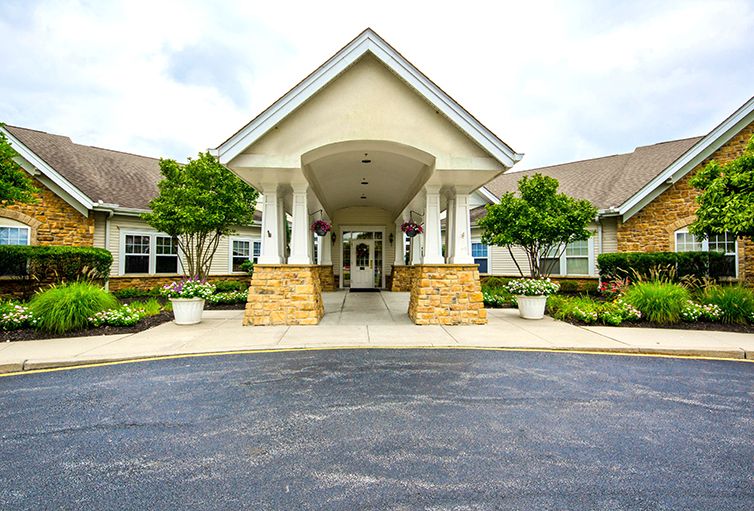Personalized Memory Care for Dementia in a Warm Space
Personalized Memory Care for Dementia in a Warm Space
Blog Article
All Regarding Memory Care Providers: Why Tiny Memory Care Residences Are a Terrific Choice
Memory care solutions play a necessary duty in sustaining individuals with Alzheimer's and dementia. Small memory care homes attract attention for their personalized technique and intimate setup. With reduced staff-to-resident ratios, these homes promote more powerful links and tailored care. Residents take advantage of boosted social interactions and a risk-free atmosphere. As families explore options, understanding the one-of-a-kind advantages of little memory treatment homes becomes important. What variables should be thought about when choosing the appropriate home?
Comprehending Memory Treatment Services
While numerous may recognize with general senior treatment choices, understanding memory treatment solutions is essential for families encountering the challenges of cognitive decrease. Memory treatment especially deals with people with conditions such as Alzheimer's condition and various other forms of dementia. These services offer a structured environment that focuses on enhancing the quality of life for homeowners via specialized treatment and support.Memory treatment facilities are designed to guarantee safety and security, typically including secured atmospheres to prevent straying. Trained team participants are readily available around the clock to assist with daily tasks, drug management, and personal treatment. Furthermore, memory treatment programs frequently include cognitive stimulation activities, tailored to engage residents and promote psychological wellness. Households can benefit from understanding these services, as they enable notified decisions concerning their loved ones' care, making sure that their certain demands and preferences are resolved in a encouraging and thoughtful way.
The Advantages of Small Memory Care Homes
Tiny memory care homes offer distinct benefits that can substantially boost the lifestyle for homeowners with cognitive problems. One substantial benefit is the intimate environment, which enables personalized interactions among team and citizens. This smaller sized setup promotes meaningful connections, minimizing sensations of seclusion and stress and anxiety typically experienced by individuals with memory issues.Additionally, the reduced staff-to-resident ratio in little memory treatment homes makes it possible for caretakers to offer more conscientious supervision and assistance. This strategy not only boosts safety and security yet additionally promotes a feeling of protection for the residents.Moreover, tiny memory treatment homes can adjust quickly to the special demands and choices of each resident, permitting for a much more homey atmosphere. Such an environment can motivate social involvement and involvement in activities, eventually enriching the day-to-day experiences of those coping with cognitive disabilities.
Personalized Treatment Plans for Homeowners
Personalized care plans are vital in memory treatment homes, as they satisfy the distinct requirements and choices of each resident. These plans start with comprehensive analyses conducted by skilled specialists, who evaluate cognitive capacities, case history, and personal rate of interests. This tailored strategy assurances that care is not only effective however additionally respectful of each person's dignity and autonomy.Moreover, individualized care plans are adaptable, enabling adjustments as locals' requirements advance gradually. This adaptability fosters a sense of security and knowledge, which is necessary for individuals living with memory difficulties. Caregivers are trained to execute these strategies continually, giving support that lines up with the homeowners' routines and preferences.Ultimately, customized treatment strategies enhance the quality of life for locals by advertising engagement, well-being, and freedom, making them an essential element of memory care solutions in tiny memory care homes.
Developing a Home-Like Setting
Producing a home-like environment is essential for fostering convenience and experience in memory treatment settings, as it greatly impacts homeowners' emotional health. Little memory care homes often focus on tailored touches, such as cozy color schemes, family members pictures, and acquainted furnishings arrangements, which aid locals really feel more at convenience. Integrating elements evocative a traditional home, like comfortable space and public areas, encourages a feeling of belonging.Moreover, using all-natural light and outdoor spaces can boost the environment, promoting leisure and serenity. Employee play a substantial role in keeping this setting by engaging with locals in a thoughtful manner, treating them like family members. Routine tasks, such as food preparation or horticulture, can additionally add to a home-like feeling, supplying chances for residents to take part in purposeful experiences. On the whole, producing a nurturing setting sustains cognitive feature and psychological security, making it a vital facet of memory care services.
Enhanced Social Communication and Area
Enhanced social interaction and neighborhood are essential elements of memory treatment solutions. By cultivating personalized social involvement and developing a family-like ambience, these solutions advertise purposeful connections among locals. Group occasions and tasks additionally motivate involvement, assisting people feel more included and sustained.
Individualized Social Engagement
While social interaction is crucial for overall health, lots of people with memory problems commonly have a hard time to involve meaningfully with others. Individualized social interaction in memory care homes addresses this challenge by producing tailored activities that accommodate citizens' one-of-a-kind interests and abilities. By concentrating on specific choices, caretakers can promote links that resonate deeply with each person. Activities such as art treatment, songs sessions, and assisted discussions advertise cognitive excitement and emotional expression. Additionally, tiny group setups urge friendship and enable even more intimate communications, boosting feelings of belonging. This strategy not only deals with feelings of isolation but additionally equips citizens to maintain a feeling of identification, ultimately contributing to enhanced psychological health and lifestyle.
Family-like Ambience
In a memory care setup, promoting a family-like atmosphere considerably improves social communication and builds a feeling of community among citizens. Smaller sized memory treatment homes commonly prioritize intimate atmospheres, allowing citizens to form closer links with each other and employee. This nurturing ambience promotes trust, which is essential for individuals with memory disabilities. Homeowners are more probable to talk and share experiences, creating a helpful network that relieves feelings of solitude. The knowledge of common rooms and regimens contributes to a feeling of belonging, further motivating social communication (personalized memory care). In such setups, emotional bonds prosper, leading to enhanced total health and a better of life for residents as they navigate their everyday experiences together
Team Activities and Occasions

Safety and Protection Attributes in Tiny Residences
Several small homes created for memory treatment integrate crucial safety and protection attributes to assure the wellness of citizens. These homes typically use secure access and departure indicate prevent straying, a typical issue among individuals with memory impairments. Furthermore, surveillance systems and alarm devices improve monitoring, guaranteeing that staff can without delay react to any unusual activities.Interior formats are tailored for safety and security, with lessened threats such as clutter-free pathways a knockout post and sharp edges. Handrails and non-slip floor covering are normally mounted to decrease the threat of drops. Employee are learnt emergency protocols, ensuring they are gotten ready for different situations.Moreover, customized treatment plans may include analysis of individual security needs, giving tailored services for every homeowner. On the whole, these safety and security and security functions develop a caring setting where residents can flourish while preserving their self-respect and independence.
Just how to Pick the Right Memory Treatment Home
How can households ensure they select one of the most suitable memory treatment home for their liked ones? The choice needs careful factor to consider of numerous variables. Households must examine the center's team certifications and training, ensuring that caregivers are experienced in taking care of memory-related conditions. Next off, it's crucial to examine the home's setting, focusing on safety and security features and whether it cultivates a feeling of neighborhood and belonging. Visiting the center can provide insight right into day-to-day tasks and the social environment, which are necessary for psychological stimulation and emotional wellness. Furthermore, households need to ask about the care plans provided, guaranteeing they try this website are customized to specific requirements. Considering the home's location and accessibility for family members check outs can contribute to a smoother change. By addressing these facets, households can make an informed choice that prioritizes their loved one's convenience and lifestyle in a memory care setup.
Regularly Asked Inquiries
What Credentials Should Personnel Members in Memory Care Houses Have?
Personnel in memory care homes need to possess pertinent accreditations, experience in mental deterioration care, strong communication skills, and concern. Continuous training in behavioral monitoring and healing interventions boosts their ability to sustain homeowners properly.
Exactly How Do Memory Care Provider Differ From Conventional Assisted Living?
Memory care solutions focus specifically on people with memory disabilities, providing specific assistance and organized environments. In comparison, standard assisted living offers basic support with daily tasks, lacking the customized method essential for those with cognitive difficulties.
What Kinds of Activities Are Supplied in Memory Care Homes?
Memory treatment homes usually supply a variety of activities developed to engage homeowners. Common choices include art treatment, songs sessions, cognitive video games, exercises, gardening, and social occasions, all aimed at improving wellness and cognitive feature.
Can Citizens Bring Their Own Personal Belongings to Memory Care Residences?
Residents can usually bring their own valuables to memory care homes, enabling them to individualize their home - personalized memory care. This method aids produce an acquainted setting, advertising convenience and a sense of identity for the individuals

Exactly How Are Member Of The Family Associated With the Treatment Process?
Member of the family play an important duty in the treatment process, commonly participating in decision-making, attending treatment conferences, and supplying psychological assistance. Their participation cultivates a joint setting, improving the resident's overall health blog and quality of life. While lots of might be familiar with basic senior care options, understanding memory care services is vital for families facing the obstacles of cognitive decrease. These services supply a structured environment that concentrates on boosting the top quality of life for residents through specialized treatment and support.Memory care centers are developed to guarantee safety and security and security, commonly including protected settings to protect against wandering. Personalized care plans are important in memory care homes, as they provide to the distinct demands and preferences of each homeowner. Personnel members in memory treatment homes ought to have appropriate certifications, experience in mental deterioration treatment, strong interaction skills, and empathy. Memory treatment solutions focus particularly on individuals with memory disabilities, offering specialized assistance and organized settings.
Report this page